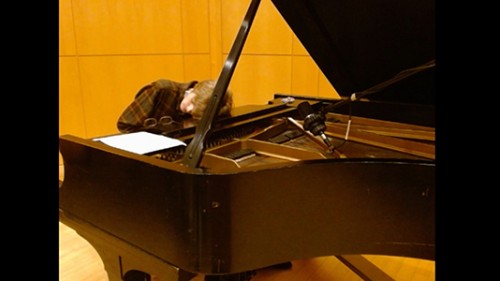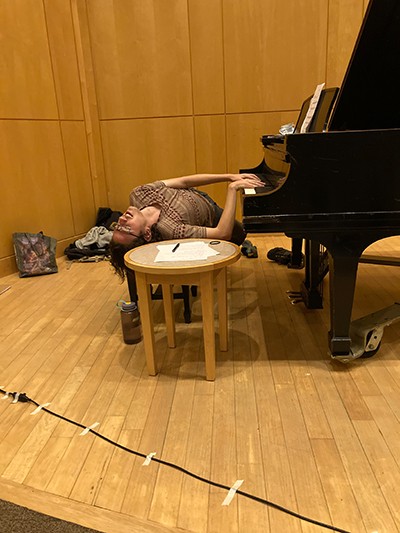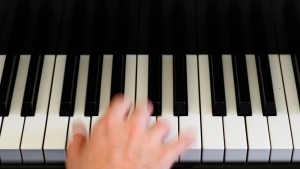
We recently completed a performance of Erik Satie’s piece, “Vexations.” For those who are unfamiliar with the piece, Satie indicated that should someone wish to perform the short theme 840 times, they should prepare themselves with silence and stillness. John Cage took this as literal direction that the piece should be played 840 times and started a tradition of performers playing it as such. We carried on this tradition four Sundays ago. Our performance lasted 20 hours, after which we moved on with our lives.
Below, a list of more than 80 suggested questions, which, when read together, seem not so much a questionnaire, but a poem.
How long did it take you to play the piece?
Do you think the piano had a nice day?
Did you have a nice day?
When people applauded at the end, what were they applauding?
Ought we to clap at the end of every day?
Did you know beforehand what you learned from the experience?
“I've now witnessed three complete versions of “Vexations” in my life,” said Professor of Music Ross Feller, who teaches the Composition seminar in which Hiton first heard about the work. “Compared to the other performances I've witnessed, Eli and Ethan's performance was much more irreverent and playful, comedic, humorous. There were just some crazy things happening, where Ethan was underneath the piano playing upside down and backwards. Then Eli was playing with one hand the theme and then with the other hand he was eating or drinking. The other performances I've seen were much more serious, and I would say boring, to witness. It was a real pleasure to see them do this.”

Why did people come watch you?
Is there any reason for asking?
Does Satie know to avoid parallel fifths?
Do you know this piece?
Are you known?
Would you have been upset if no one showed up?
Would you have played differently?
Would the performance be different if the piano had no strings?
Would you have played differently?
Did the stillness upset you?
“The piece, and a lot of Satie's music, functions like wallpaper by design,” said Feller. “That's what he wanted it to be. On the other hand, each time they play through the theme and the movements, there's something different about it. It's the exact opposite of monotony. It really brings you into focus and you start listening to real subtle variations.”
Would the piece be beautiful if there were no strings?
Would it have been beautiful if no one was there?
Within a 20-hour performance time span, the body necessitates taking breaks. Yet the two hardly left the room, even to eat. “We had people bring us food, actually,” Hiton noted. The two ate and drank while playing (an option enabled by the fairly simple composition of the piece), and sat on the ground when not playing.
One might assume that a performance that started at five in the morning and ended at 1 a.m. would have empty seats at least some of the time. But according to Hiton and Bonnell, that was not the case. “That we were performing in the presence of other people was important to what we were doing in some way,” said Bonnell. “I don't think it has to be like that. That was just the way that we did it. It was nice to have people in the same room.”
“There was a kid named Kyle who was there the whole time except for when he left to get us food,” said Hiton. “That was cool. Yeah, there were six or so other people there at the end. All the way through to the finish.”
At the end of the 20 hours, the two returned to their dorm rooms to catch up on sleep. After all, there was class tomorrow.
“At the end [of the performance] the people there gave a little applause,” Bonnell said. “Then we started a tradition of clapping at the end of [something]. If we were working on math stuff in the math lounge till late at night, at the end we’d clap. Good job on your day.”
What is the end of your performance?
Did you see the sunrise this morning?
Should we applaud something so beautiful?
Are you finished?
Will this go on forever?


